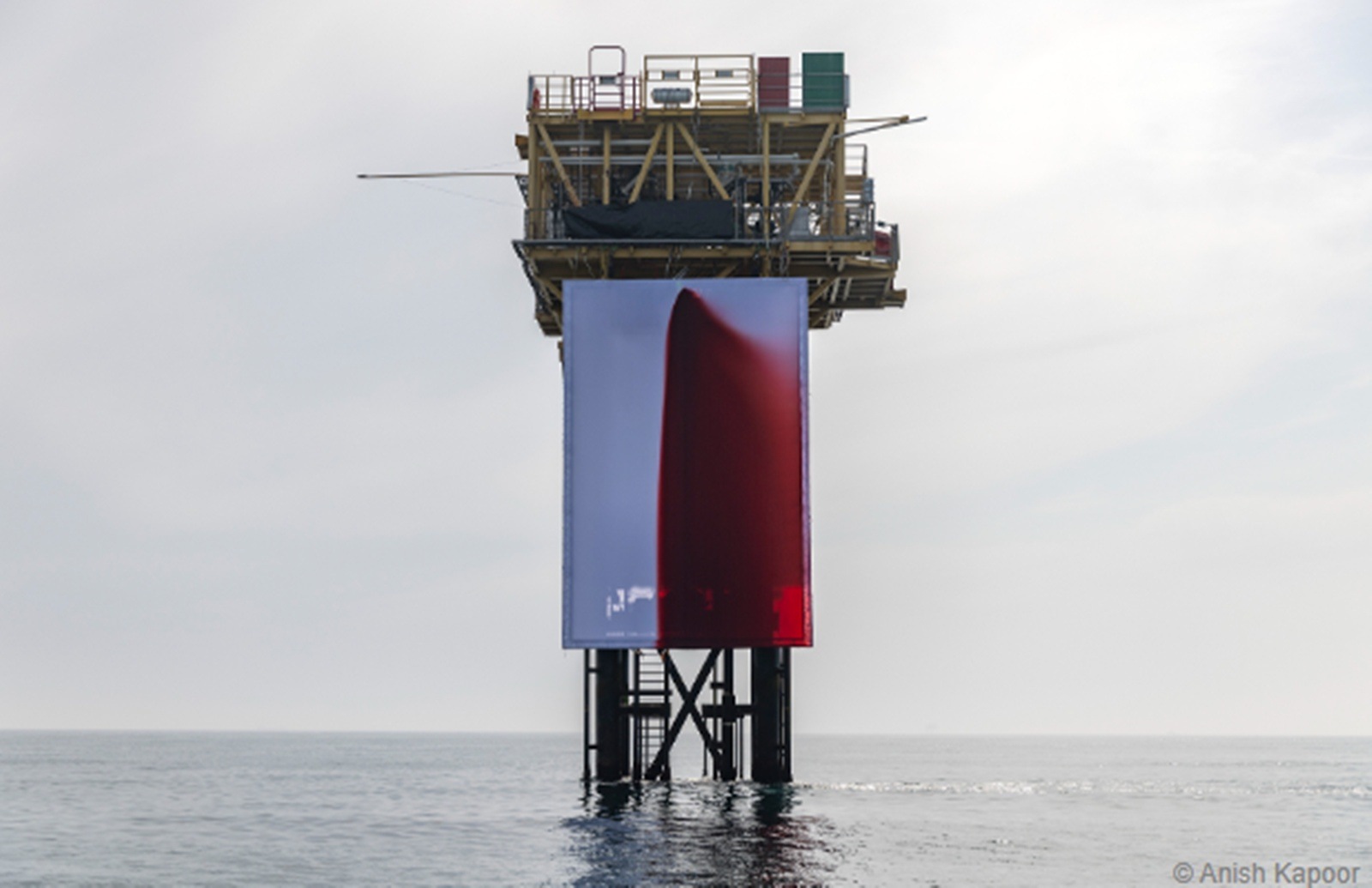Anish Kapoor’s protest art is now on display in the North Sea
Greenpeace activists have installed Kapoor's Butchered on a Shell gas extraction platform to reflect on the adverse effects of the fossil fuel industry on the environment
 Mixed media on canvas 12×8 m
Installed on a Shell gas platform, North Sea (Source: Anish Kapoor)
Mixed media on canvas 12×8 m
Installed on a Shell gas platform, North Sea (Source: Anish Kapoor)After calling on London’s National Portrait Gallery to sever its ties with the oil giant BP some years ago, London-based artiste Anish Kapoor has taken his protest art highlighting the catastrophic effects of oil and gas on climate to an active fossil fuel platform. His 12 m x 8 m canvas titled Butchered has been fastened to a gas extraction platform belonging to Shell in the remote North Sea. The work was installed by Greenpeace activists last week.
In a statement on the Greenpeace website, Turner prize-winning Kapoor said, “I wanted to make something visual, physical, visceral to reflect the butchery they are inflicting on our planet: a visual scream that gives voice to the calamitous cost of the climate crisis, often on the most marginalised communities across the globe.
The artwork features 1,000 litres of blood-red liquid flowing onto the canvas fastened to the gas platform, creating a crimson pattern. “The ‘blood’ used to create the work is predominantly made from seawater, combined with beetroot powder, organic decaf instant coffee granules and a biodegradable, food-based pond dye. The combination is non-toxic and biodegradable and will rapidly disperse,” notes the Greenpeace website.
 His 12 m x 8 m canvas titled Butchered has been fastened to a gas extraction platform belonging to Shell in the remote North Sea. (Source: Anish Kapoor)
His 12 m x 8 m canvas titled Butchered has been fastened to a gas extraction platform belonging to Shell in the remote North Sea. (Source: Anish Kapoor)
The Indian-origin British artist has lent his support to several concerns in the past, ranging from socio-political issues to racism, antisemitism and copyright infringement. Speaking about this particular artwork, he added, “Butchered is also a tribute to the heroic work done in opposition to this destruction, and to the tireless activists who choose to disrupt, disagree and disobey.”
Installed at a time when England experienced its fourth heatwave of the summer — with several places experiencing temperatures higher than 30 degrees — Greenpeace noted how it is crucial for governments to now step in. Its website notes: “Fossil fuel companies like Shell should be made to pay for the damage they have knowingly caused. They won’t do this on their own – it’s time for governments to step in and hold them to account… Governments must introduce new taxes and fines on big polluters to help communities at home and around the world rebuild from climate disasters and invest in climate solutions.”



- 01
- 02
- 03
- 04
- 05




























